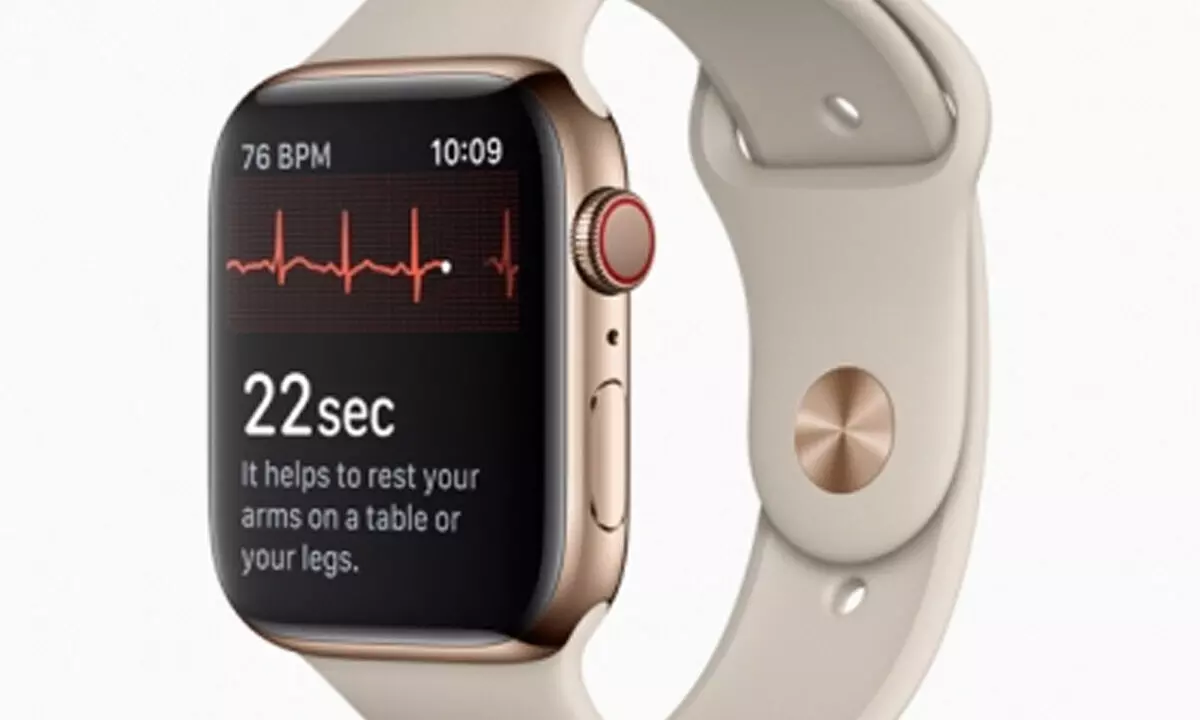Global researchers to decode new heart health using Apple Watch

Global researchers to decode new heart health using Apple Watch
Apple has armed global researchers with Apple Watch devices to help explore new frontiers in heart health, the company said on Wednesday.
San Francisco: Apple has armed global researchers with Apple Watch devices to help explore new frontiers in heart health, the company said on Wednesday.
Using Apple's newly launched Investigator Support Programme, researchers can pioneer understanding of the heart with Apple Watch devices.
Apple Watch is currently known to provide heart health features such as high and low heart notifications, cardio fitness, irregular rhythm notifications, the ECG app, and atrial fibrillation (AFib) history.
With the new programme, Australia-based paediatric oncologists Associate Professor Rachel Conyers and Claudia Toro are looking at how treatment can impact heart rhythm.
"I read about the Apple Heart Study and I thought this could be important for paediatrics," Conyers said in a statement.
"We used to think of cardiac toxicity as something that happened 10 years after treatment. But now we know that new cancer therapies (like specific inhibitors or immune therapy) can cause arrhythmias within 48 hours of medication -- so there's a big gap in terms of what we know about the toxicities at the moment," she added.
Conyers and her team at the Murdoch Children's Research Institute in Melbourne will begin with researching the sensitivity of the Apple Watch ECG app. The study on 40 children and adolescent patients aims to better understand the reality of cardiac toxicity and identify potential opportunities for intervention.
Further, So-Min Cheong from Texas A&M University and Brian Kim and Marco Perez at Stanford Medicine in the US plan to use Apple Watch to study the impact of wildfire smoke on heart health.
Using Apple Watch, the team plans to monitor heart rate and rhythm, sleep, blood oxygen, activity data, and more in up to 200 firefighters.
"Firefighters are bound to benefit from the study," said Cheong. "We know wildfire smoke directly affects their health and with a study like this, they'll be able to see their results in real time."
Similarly, researchers at the Amsterdam University Medical Centers in Europe also aim to use Apple Watch to detect AFib earlier.
The randomised controlled study will enrol more than 300 patients over the age of 65 who meet a risk threshold for AFib.
AFib is a common heart arrhythmia that can have serious impacts -- such as a higher risk of stroke or heart failure -- if left untreated.
"Apple Watch is such a widely used, reliable consumer wearable that we thought it would be a great device for us to integrate into our research to better understand how we could potentially integrate it into the larger health system," said Sebastiaan Blok, director of eHealth at the Cardiology Centers of the Netherlands.














